Peer learning: Why it’s so important for remote sales teams and how enablement leaders can foster it
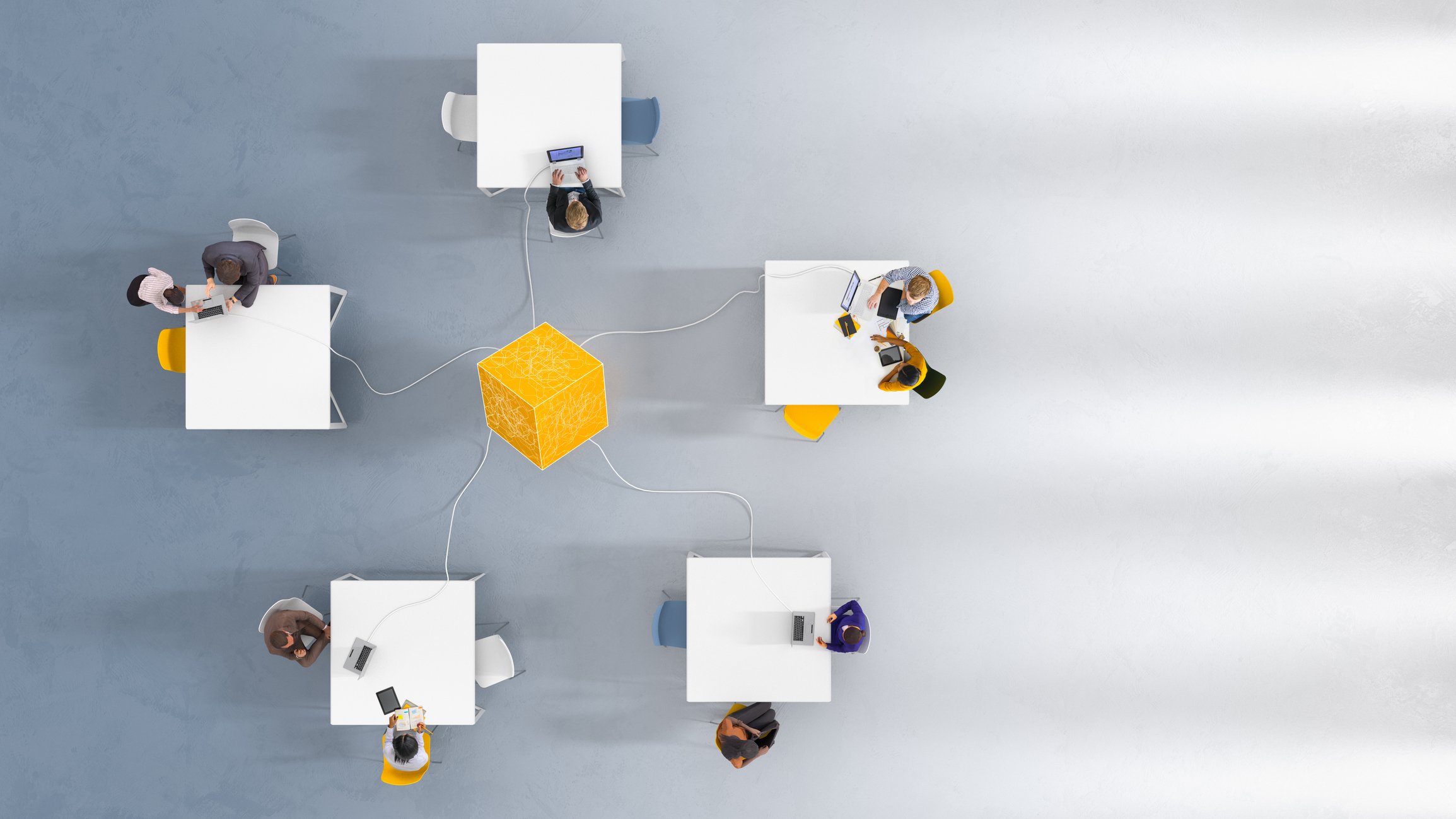
By Beverlie Heyman, Bigtincan/Brainshark Director of Sales Enablement and WiSE Chapter Lead/Enablement Strategist/Coach.
Who do you trust more — your boss or your colleague? Your mom or your sister? Your friend who’s the top student in the class or the teacher?
People tend to be more receptive to advice from their peers than from authority figures or those outside of their direct circles. In fact, 65% of sales reps prefer to learn from their peers versus a sales manager or sales enablement practitioner (Salesloft).
That’s why you need to build a community and culture of peer learning in your remote sales teams if you want to be effective as a sales enablement leader.
Let’s take a look at what peer learning is, why it matters, and the best methods for fostering a peer learning community in sales teams, based on my 25 years of experience in sales, sales leadership, and enablement.
What is peer learning and why does it matter?
With many sales and client-facing teams working remotely, peer learning has only become more important to knowledge sharing, skill development, and performance.
But what does peer learning mean?
For sales organizations, peer learning or peer-to-peer learning is a continuous training approach that leverages institutional knowledge and facilitates a method to share it so reps can learn from each other.
No matter how long your reps have worked for your company, they probably have a lot of sales experience, skills, and knowledge that resides inside their heads. With peer learning, you can capture and save that knowledge so it doesn’t leave your organization if the rep does.
Peer learning can happen naturally from reps interacting with one another or sales enablement teams can expedite this process by cataloging and sharing peer learning content via a sales readiness platform.
In any case, with many teams working remotely or already globally distributed, peer learning is even more important since the typical, in-person exchange of ideas is not regularly available.
Why peer learning is important for remote sales teams
- Replaces in-person “water cooler” talk
- Reinforces training
- Makes training programs more current
- Helps B and C players level up
- Facilitates the virtual exchange of institutional knowledge (and remote selling tips)
- Builds a community, opens up communication, and develops a sense of belonging among sales reps
- Scales the efforts of typically small sales enablement teams
- Helps reps embrace best practices faster
How to build a remote peer learning culture
Create a buddy system
Let’s revisit the stat from earlier, that 65% of sales reps prefer to learn from their peers.
With that in mind, it will serve you to create a buddy system for the onboarding and continuous training of your newer or lower-performing sales reps. Pair a new or struggling rep with a tenured or high-performing rep to shadow them on calls and learn from their experience. This creates an informal mentorship for the new rep without taxing the tenured rep too much — your high performer simply carries on in their role as they normally would as their buddy listens to their responses and observes them.
We explore this concept more in this video featuring real commentary from Brainshark reps and former heads of sales enablement, which still holds true today.
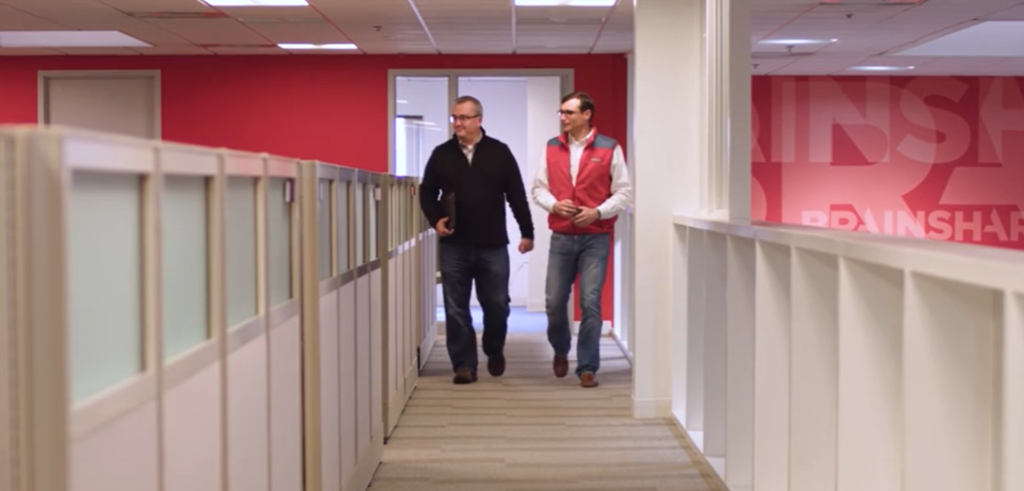
Take the grades out
If you want adoption of your training content, coaching challenges, or sales enablement tools, you need to take the pressure off by taking the grades out from time to time.
Don’t limit your coaching challenges to just message consistency and practice. Use coaching challenges to survey your reps and leverage tribal knowledge.
Reps will not engage with training resources if every microlearning video ends with a quiz or the only reason they sign on to the platform is to be assessed. Let the learning platform fulfill its title — use it for learning, not just grading. Even if you aren’t using a platform just yet, not every practice pitch or role-play scenario has to be ranked. Make space for your teams to simply ask questions or share knowledge.
At the close of 2022 I put out a coaching challenge in Brainshark asking, “What training would you like to see in 2023 to help you be more successful in your role?”
I listened to their responses, analyzed the asks, and prioritized our team’s initiatives to build a sales enablement strategy that responds directly to my team’s needs.
Build a community question repository
You can also leverage coaching challenges to share best practices.
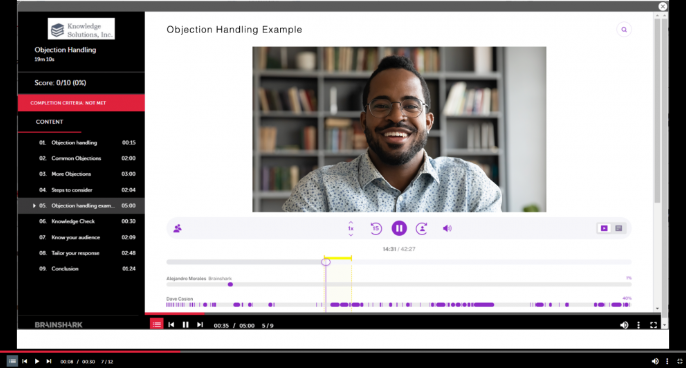
I set up a coaching challenge for all of my sales reps asking them to “Share a best practice or productivity hack that you are using that has helped you be more successful this year.” I then take the best responses and repurpose them in Brainshark for the rest of the sales team.
This is an easy way to get your reps sharing sales tips with one another and upskilling your team members.
This is huge in environments where the sales enablement role is less resourced. It’s a great way to have other people leverage their skill sets so you can repurpose the content they create for onboarding and improving B and C players.
It also replaces “water cooler” talk, where reps casually exchange ideas and tips around the office unprompted.
In addition to these best practice challenges, you can set up a virtual water cooler for impromptu peer learning using groups or channels in your collaboration tool (i.e. Slack, Microsoft Teams) where reps can share information and the latest tips and tricks.
Share the good, bad, and the ugly
You can supplement the live shadowing established in the buddy system with demo recordings, informal videos from reps, and other tools like conversation intelligence that record, score, and compile sales calls, serving as a database of what to do and even what not to do.
It’s easy to elevate and educate using people who are embracing best practices (the good). Have reps share win stories or examples of how they overcome a particular objection in short, informal videos.
See also: How to get sales reps on board with video coaching assessments
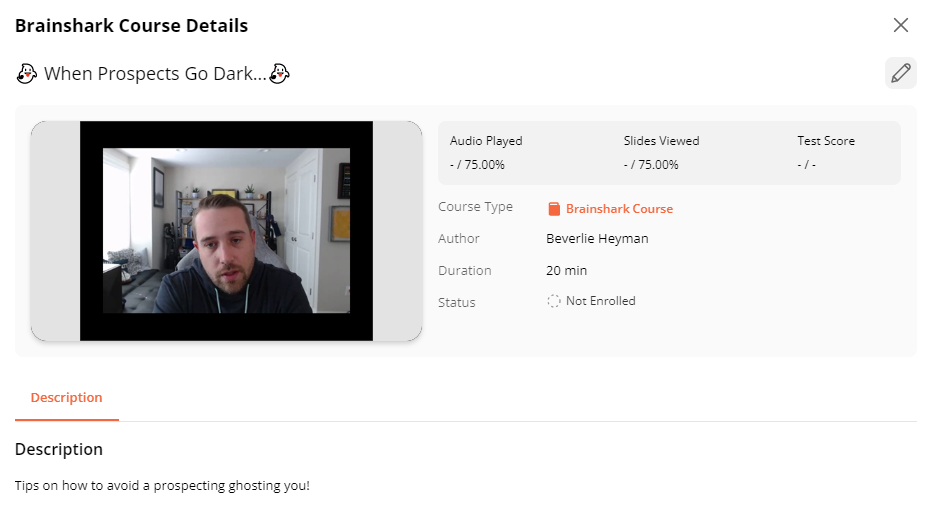
Reps also learn a lot from their colleagues’ lost deals or problems navigating (the bad and the ugly). It’s important to learn from mistakes — when we focus on deals we’ve lost, the greater the opportunity is that we will play our cards differently next time and win that deal while facing the same or similar issues.
You can even incorporate the best responses directly into courses or tag them so they’re easily searchable in your content portal for just-in-time learning.
Help reps “rise”
Lift your reps up through recognition. Just like enablement programs aren’t just for grading, they also aren’t just for negative feedback. If you want to encourage rep participation in a learning community, you need to include positive reinforcement.
Think about common sales rep traits — they tend to like recognition and being in the spotlight. For the most part, sales reps also tend to be more extroverted and motivated by competition.
Play off these traits to encourage participation. When reps see others getting recognized for their efforts, they will want to join in.
“Recognition” doesn’t necessarily mean monetary rewards, either — just recognition for what reps are contributing to the company and the peer learning community.
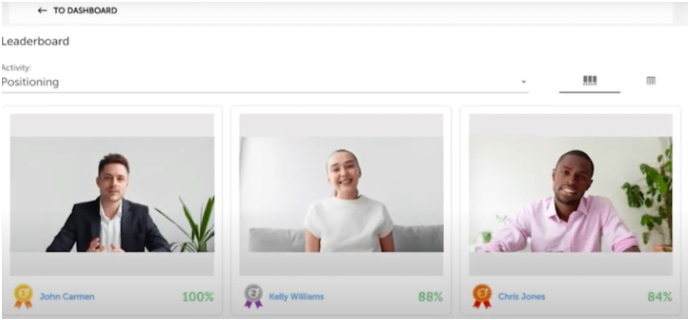
If you aren’t taking advantage of peer learning as a sales enablement professional, you are leaving a huge opportunity to scale your own efforts on the table.
As a small team or team of one (which enablement teams tend to be), there’s only so much you can do — you need to pull in your high-performing and tenured reps to build out and maintain a successful enablement program.
By making community a priority and building a peer learning culture in your sales org you will foster that tribal feeling and tacit knowledge that comes through osmosis — which organically results in productivity, rep retention, and higher revenue without running yourself ragged.
Here are some other resources you’ll find helpful in your sales enablement role:

